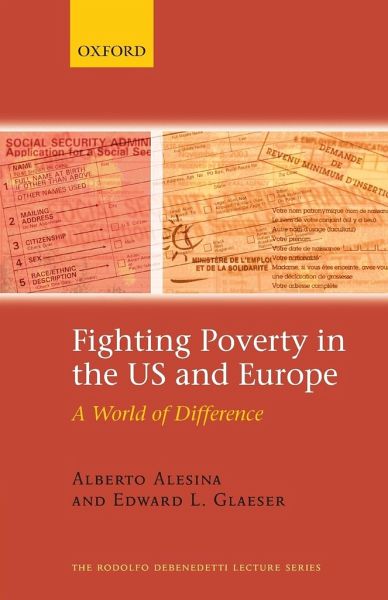
Fighting Poverty in the US and Europe
A World of Difference

PAYBACK Punkte
35 °P sammeln!
As events highlight deep divisions in attitudes between America and Europe, this is a very timely study of different approaches to the problems of domestic inequality and poverty. Based on careful and systematic analysis of national data, the authors describe just how much the two continents differ in their level of State engagement in the redistribution of income. Discussing various possible economic explanations for the difference, they cover different levels of pre-tax income, openness, and social mobility; they survey politico-historical differences such as the varying physical size of nations, their electoral and legal systems, and the character of their political parties, as well as their experiences of war; and they examine sociological explanations, which include different attitudes to the poor and notions of social responsibility. Most importantly, they address attitudes to race, calculating that attitudes to race explain half the observed difference in levels of public redistribution of income. This important and provocative analysis will captivate academic and serious lay readers in economics and welfare systems.
In this timely study of the different approaches of America and Europe to the problems of domestic inequality and poverty, the authors describe just how different the two continents are in the level of State engagement in the redistribution of income. They discuss various possible economic explanations for the difference, including different levels of pre-tax income, openness, and social mobility; they survey politico-historical differences such as the varying physical size of nations, their electoral and legal systems, and the character of their political parties, as well as their experiences of war; and they examine sociological explanations which include different attitudes to the poor and notions of social responsibility, as well as, most importantly, attitudes to race.














